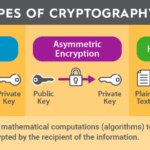In the age of digital communication, the efficacy of encryption as a method of safeguarding sensitive information cannot be overstated. Yet, as we delve deeper into the intricacies of cryptographic strength, one must ponder: can encryption truly be too strong? This introspective question invites a profound examination of the legal and ethical boundaries that govern its use, posing a challenge to both law enforcement and civil liberties.
To comprehend this dilemma, one must first familiarize themselves with the fundamental principles of encryption. At its core, encryption is the process of transforming data into a format that is unreadable to unauthorized users, thereby preserving confidentiality. The robustness of encryption algorithms—such as AES (Advanced Encryption Standard)—is often measured by their resistance to cryptanalysis or unauthorized decryption attempts. As cryptographic techniques have evolved, so too have the methods employed by malicious entities seeking to exploit vulnerabilities.
The strength of encryption can often be correlated with the key length—the longer the key, the more potential combinations an adversary must traverse to decipher the encrypted data. For instance, a 256-bit key offers an astronomical level of security, rendering it infeasible for even the most sophisticated adversaries to crack. However, this leads to the paradoxical conundrum of whether such a towering edifice of security may inadvertently pave the way for illicit activities.
As we venture into the legal realm, the discourse surrounding encryption becomes markedly nuanced. Governments worldwide grapple with the implications of unyielding encryption. On one hand, law enforcement agencies argue that overly robust encryption serves as a bulwark for criminals, complicating investigations into nefarious activities such as terrorism and organized crime. They posit that the inability to access encrypted communications hinders public safety efforts and underscores the need for backdoors—exploitable vulnerabilities deliberately integrated into encryption schemes that would allow law enforcement access under defined circumstances.
Meanwhile, civil liberties advocates fiercely contest this viewpoint. They assert that strong encryption is a cornerstone of privacy protection in an increasingly surveilled society. To advocate for weakened encryption is to invite a cascade of vulnerability, potentially exposing private citizens’ data to malevolent actors who may exploit these very backdoors intended for law enforcement. The argument holds that those with malicious intent will invariably find ways to circumvent any governmental measures intended for oversight, thus undermining the intended purpose of weakened encryption.
This ongoing debate compels us to consider the ethical boundaries encircling encryption in practice. From a moral standpoint, one must ask: should a government impose restrictions on individuals’ rights to utilize strong encryption for their protection? The answer is multifaceted, influenced by varying cultural contexts, legal frameworks, and societal norms. Societies that prioritize individual privacy may lean heavily toward protecting encryption rights, viewing it as a shield against potential governmental overreach. In contrast, societies that prioritize collective security may advocate for mechanisms that allow state intervention.
Furthermore, the ethical implications extend beyond governmental oversight. They also penetrate into corporate practices pertaining to data security. Within the private sector, organizations are often faced with the dilemma of implementing strong encryption protocols to safeguard user data while balancing potential liabilities associated with data breaches. The implementation of strong encryption may lead to a false sense of security if not meticulously managed or accompanied by rigorous security practices.
As individuals, we too have a role in this discourse. The digital age has heightened our reliance on technology for communication, banking, and myriad other facets of daily life. In an environment where hacking and data breaches are prevalent, strong encryption can be our most formidable ally. Yet, does that same encryption empower unsavory individuals to commit acts that threaten public safety? This poses a unique ethical quandary. It elevates the question of whether the encryption tools we wield become weapons in the hands of the unprincipled.
In the technological milieu, one must assess the ramifications of encryption in a globalized world. Different countries maintain varying regulations regarding encryption. For instance, some nations endorse strong encryption as a human right, while others may impose stringent restrictions. This juxtaposition fosters significant international tension. A unified global standard for encryption appears distant, given the divergence in policy and perspective.
The challenge of determining the optimal balance between encryption strength, public safety, and individual privacy continues to beckon further examination. As technology marches forward, engaging with encryption and its myriad implications becomes increasingly crucial. Can a middle ground be achieved—one that incorporates robust encryption methods while also ensuring law enforcement remains equipped to effectively combat criminality?
In conclusion, the quandary of whether encryption can be too strong transcends a mere technological consideration and delves into the realms of legality and ethics. As society continues to negotiate its relationship with privacy, security, and freedom, the repercussions of encryption practices are profound. Thus, the question lingers: as we forge ahead in an encrypted future, can we navigate the turbulent waters of legality and ethics to secure a harmonious balance that protects everyone involved?









Leave a Comment